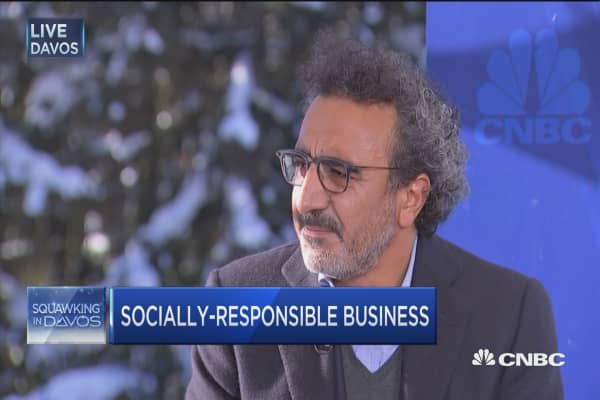At first glance, China appears to be a far more unequal country than the U.S. Its hundreds of billionaires tower over the emerging middle class, while millions ofothers live on less than $1 a day.
But new data shows that inequality in the U.S. is actually worse than it is in China.
In a paper published by the National Bureau of Economic Research, economists Facundo Alvaredo, Lucas Chancel, Thomas Piketty, Emmanuel Saez and Gabriel Zucman found that inequality in both the U.S. and China has grown rapidly over the past few decades.
In China, the top 1 percent earned 13 percent of personal income in 2015 — double their share in the 1980s. In the U.S., the top 1 percent earned 20 percent of income. That's also roughly double the level from the 1980s.
Of course, measuring the incomes of the wealthy Chinese is an especially difficult task, since so much of their money is hidden. As the paper notes, "our estimates should likely be viewed as lower bounds, due to tax evasion and other limitations of tax data and national accounts in China."
Chobani CEO: Closing the gap on income inequality Wednesday, 18 Jan 2017 | 8:23 AM ET | 02:31
But the paper points out that there has also been a big difference in the fortunes of those at the bottom in both countries — a difference that makes the income gap far worse in the U.S.
According to the research, the incomes of the bottom 50 percent in China (those earning less than $9,280, using purchasing power parity-adjusted exchange rates) fell from 27 percent in 1978 to 15 percent.
In the U.S., the bottom 50 percent (those with annual incomes below $36,000) have seen a "complete collapse" in their share of national income. Between 1978 and 2015, their share of income went from 20 percent to 12 percent — 3 points lower than China's.
"Policy discussions about rising global inequality should focus on how to equalize the distribution of primary assets," the researchers concluded. That includes better education, access to skills and minimum wage reform.

